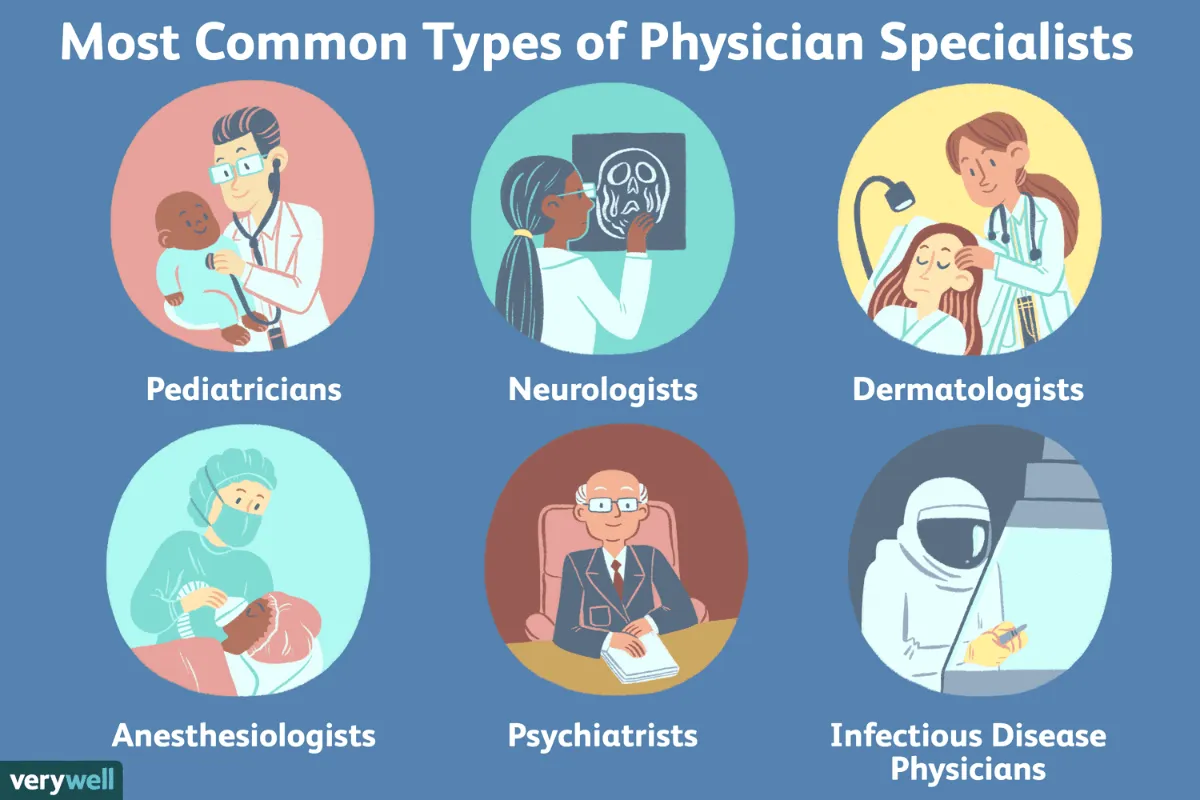These are a few categories of physicians and their roles:
A neurologist; diagnoses, treats, and oversees neurological and brain problems.
A psychiatrist; emphasizes mental health treatment and prevention through the use of methods such as family counseling, talk therapy, and psychiatric drugs.
Gynecologists and obstetricians (OB/GYNs): focuses on the reproductive system of women.
A gastroenterologist; focuses on identifying and treating disorders and illnesses affecting the digestive system, which includes the stomach, intestines, liver, and gallbladder.
Ophthalmologist; An ophthalmologist who can do eye surgery, diagnose and cure eye conditions, and prescribe glasses or contact lenses
Surgeon for the head and neck and otolaryngologist: focuses on conditions affecting the head and neck.
Oncologist; A cancer specialist who frequently collaborates with surgeons and radiation oncologists
Cardiologist; focuses on the heart and blood arteries, avoiding heart disease and enhancing the lives of those who suffer from cardiovascular issues.
Dermatologist; specializes in treating skin-related illnesses and conditions, such as performing reconstructive surgery and looking for indications of skin cancer.
Pediatrician; emphasizes the well-being of newborns, kids, teens, and young people.
How to Challenge a Health Care Bill
Bills for medical care are an unavoidable aspect of life. You or a family member will eventually need to visit a doctor and return home with a bill. Occasionally, mistakes and additional fees may appear on your bill. In the event that you believe your medical bill contains errors, follow these steps.
Consult your healthcare provider.
Give your doctor a call and explain the situation if you believe there has been an error. Request that they check the charges and correct any errors.
Your doctor may occasionally advise that these costs should be paid for by your insurance provider. Request a letter explaining your doctor’s disagreement with the denial decision made by your insurer.
Note who you speak with regarding your bills, when you spoke with them, and a synopsis of your discussions and any decisions you came to.
Be sure to address any problems as soon as possible. The majority of suppliers give you 60 to 90 days to pay your account. It will be forwarded to a collections agency if it is not paid within that time frame, which could damage your credit. While you speak with your insurance provider, request that the provider refrain from sending the bill to a collection agency.
Medical Bill Dispute With the Collection Agency
File a notice with the collection agency if the bill is sent to them while you are still in the middle of an appeal. Within 30 days, send a letter outlining your disagreement with the measure. Request that they hold off on taking the case to court while it is being looked into.
Additionally, discuss the disagreement with your physician or hospital. If the issue is with your insurance, describe it and include details about the provider.
Discuss a medical bill with your provider.
You can bargain with the healthcare provider if none of these solutions resolve the issue and you are still required to pay. Request a discount and offer to provide documentation such as bank statements or tax records, proof of income, and proof of significant expenses or a disability that prevents you from working. Some suppliers might immediately give discounts of up to 20%.
You can discuss financial assistance options with your physician or the hospital if you are unable to pay the amount. You may be eligible for a portion of the expense to be covered.

